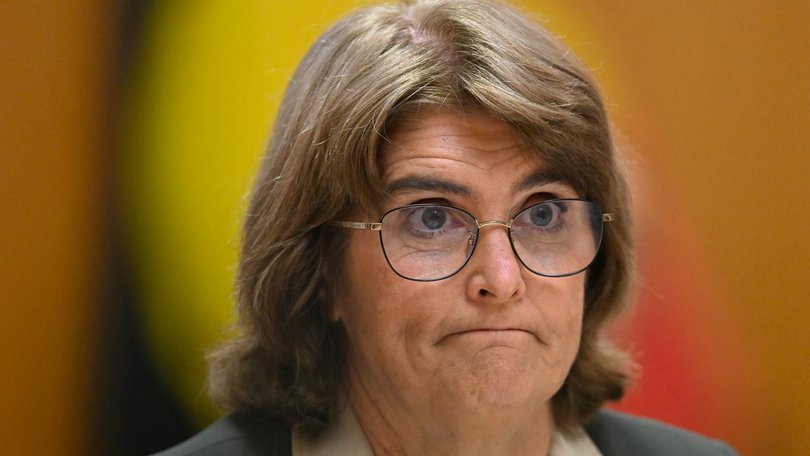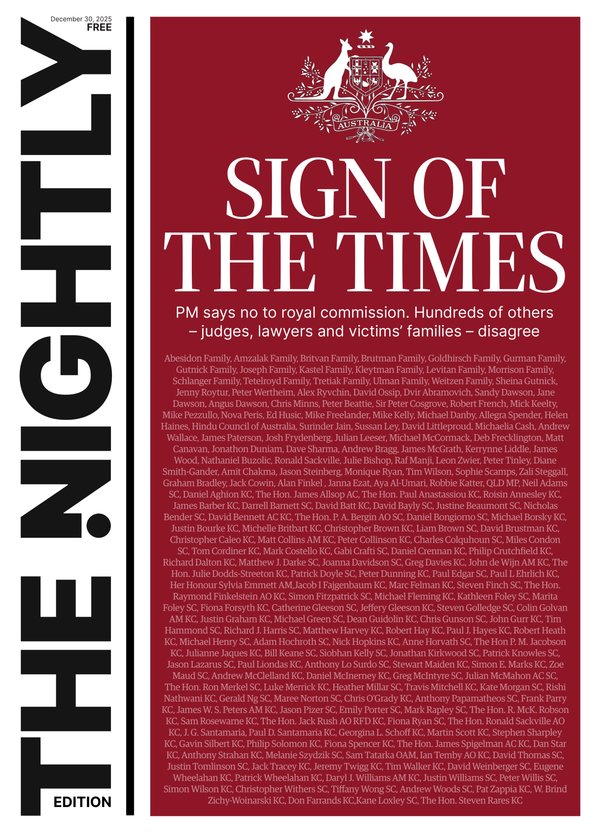RBA boss Michele Bullock in spotlight as economy posts anaemic growth

Focus will shift to Australia’s top central banker following a sombre growth report showing an economy stuck in first gear.
While the insipid 0.2 per cent growth posted in the last quarter is unlikely to surprise Reserve Bank of Australia Governor Michele Bullock, weak productivity and strong public spending may prove cause for concern.
A slower economy is an expected consequence of higher interest rates, jacked up and kept elevated to weaken demand and bring down inflation.
Sign up to The Nightly's newsletters.
Get the first look at the digital newspaper, curated daily stories and breaking headlines delivered to your inbox.
By continuing you agree to our Terms and Privacy Policy.With Wednesday’s growth figures roughly in line with the RBA’s expectations, ANZ economists were not expecting a material shift in its thinking ahead of Ms Bullock’s speech to the Anika Foundation on Thursday.
Household spending did come in notably weaker than forecasts but ANZ’s Catherine Birch and Adam Boyton said tax relief and energy bill rebates should give disposable incomes a boost.
“Which should see a gradual lift in household spending growth,” they wrote in a note.
EY chief economist Cherelle Murphy was unimpressed by Wednesday’s data, singling out weak productivity performance and strong government spending as reasons for the central bank to hold off on rate cuts.
Public spending rose strongly while the private sector stalled, with one of the key performers in the latter - spending by foreign students - scheduled to be capped.
Ms Murphy said spending by governments was doing nothing to improve productivity, with GDP per hour worked down 0.8 per cent in the June quarter.
“This is the worst possible combination of statistics, as it means Australian businesses are gaining very little from government spending, which is focused on short-term cost-of-living relief for households and band-aid fixes to neglected problems,” she said.
“For the private sector, there’s a lack of encouragement to invest for our long-term prosperity,” she added.
Treasurer Jim Chalmers said productivity markers had ticked up and down of late but acknowledged the “productivity problem” at hand.
“That’s why we’ve got a big focus on adapting and adopting technology and human capital and the energy transformation,” he told reporters in Canberra.
The treasurer said the weakness in the data, especially in household spending, suggested government cost-of-living help - including universal energy bill relief - was the right budget strategy.
The opposition disagrees and has been calling on the government to contain spending growth.
Shadow Treasurer Angus Taylor said the government needed to “live within its means” and highlighted falling labour productivity as another worry.
“You simply can’t get back to a strong, low inflation economy without strong productivity growth, and it absolutely collapsed in the last quarter,” he told reporters in Sydney.
